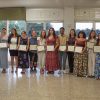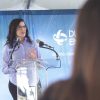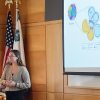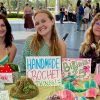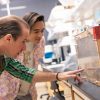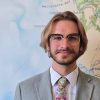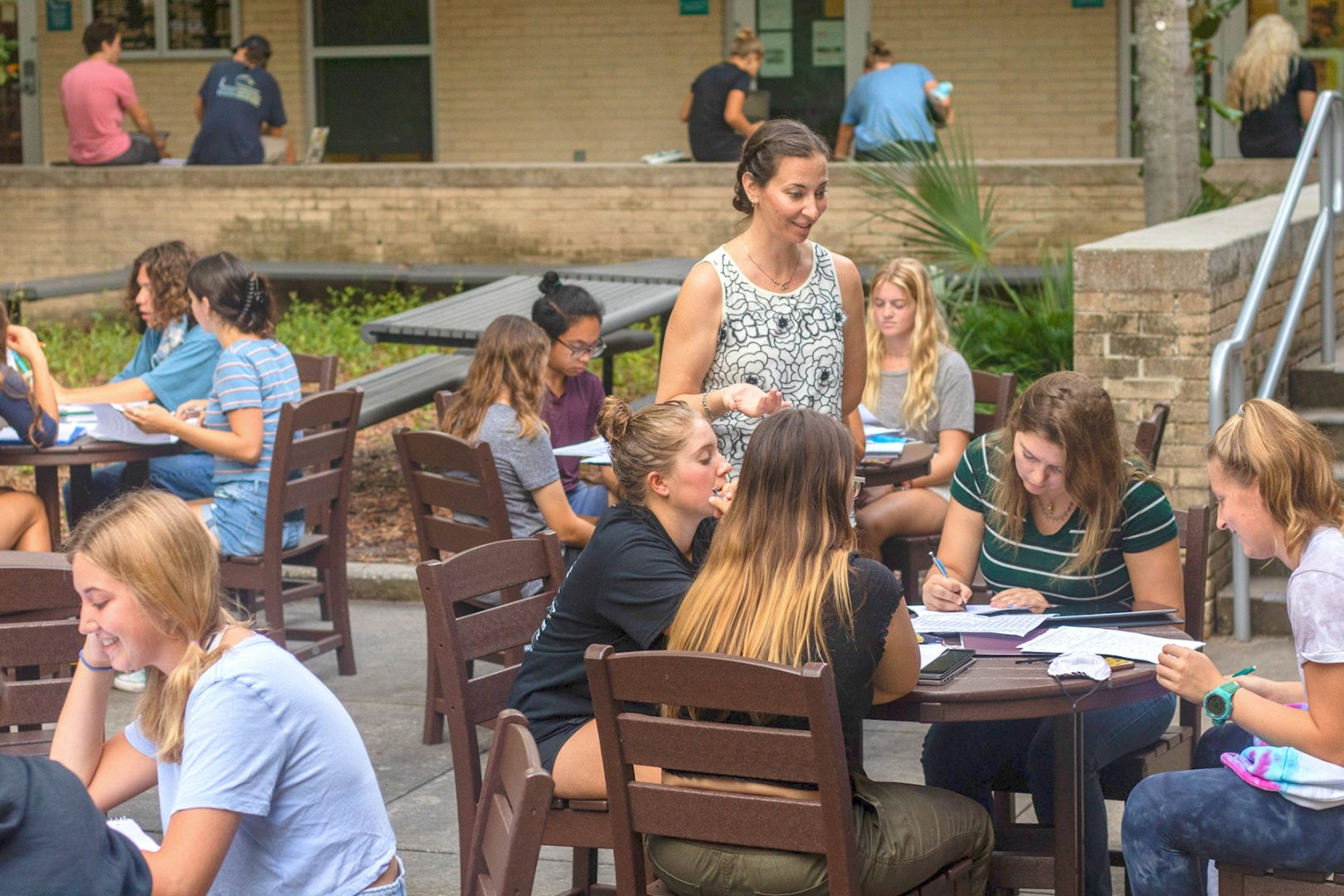
Assistant Professor of Chemistry Lisa Bonner delivers lectures as videos, saves class time to interact with the students. Photos: Angelique Herring ’19
It was the way students had learned chemistry in colleges for … ever. Go to the classroom; listen to the lecture; take notes. Then COVID-19 hit, and on March 13, 2020—a Friday—Eckerd College sent students home.
Most colleges shifted to remote learning. Everything went virtual.
But there was another way: a hybrid that combines remote and in-person learning. The process is called “flipping” a classroom, a concept first proposed in Russia in 1984.
The Eckerd version works like this: “Rather than lecturing for 60 minutes, 90 minutes, or even three hours, faculty can deliver the content in short videos ahead of time, then use the in-person meetings to work directly with the students—answering their questions, demonstrating problem-solving strategies and helping them learn how to process the information,” explains Lisa Bonner, Ph.D., assistant professor of chemistry at Eckerd. Bonner was the first faculty member to suggest using the flipping method to teach in the thick of the pandemic.
“Once we knew we were going to be delivering our classes online for the rest of the Spring 2020 Semester, I knew that we had to record our General Chemistry lectures for the rest of the Spring Semester,” she adds. “We had over 150 students, many in different time zones, and faculty with young children at home. Delivering three separate synchronous lectures of the same content to three groups of students by three different professors was not an effective use of our resources.”
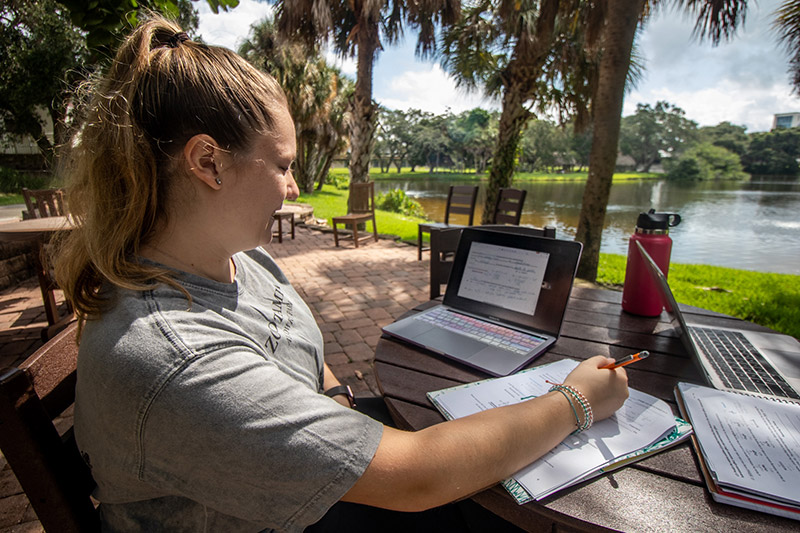
Karastyn Bennett ’25 sits on a patio to watch a recorded lecture on her laptop.
So Bonner and her colleagues Polina Maciejczyk, Ph.D., and Joe Larkin, Ph.D., both associate professors of chemistry, divided the work required to prepare lectures, online laboratory activities and electronic assessments. “I remember working all night doing lectures and coordinating with each other,” Bonner says. “But the good part is, the whole thing was done. We update the videos, but the essential part pretty much stays the same.”
Last fall, Bonner and her organic chemistry colleagues Jalisa Ferguson, Ph.D., assistant professor of chemistry, and David Grove, Ph.D., professor of chemistry, adopted a similar model—filming videos, providing notes and designing problem sets to work in small groups during class. “Fortunately, we were able to do much of the in-class group work outdoors,” Bonner says. “I could walk around to the groups and talk with them individually, and I didn’t need to be heard by the entire class at once, which would have required us to be inside.
“Not only was it safer to be outside, but how many students can say they learned organic chemistry alongside great blue herons and a roseate spoonbill, who frequented the Fox Pond patio?”
Bonner and her colleagues are teaching chemistry the same way this year. And why not? “It offers them more accessibility,” Bonner says. “So a student, say, in quarantine could still go to class. Or if they get behind, they could just rewatch the lecture.
“Organic chemistry is a class many students are terrified of,” she adds. “But our plan is for no one to fail. I think we’ve made it so we can show students there are more resources for them now to be successful. The pandemic changed the way we taught organic chemistry completely.”
And that’s just fine with her students.
“It definitely was a little scary at first,” says Esaria Oliver, a junior chemistry major from Denver who took Bonner’s chemistry classes before and after the pandemic. “I had to figure out when to listen to the lectures, so it would be fresh in my mind for class. But once I got into it, I really liked it. Dr. Bonner is so easy to reach out to on Zoom, and I have access to the lectures at any time and can go back and watch them again. It’s a good way to learn.”
“And to understand,” adds Dante Love, a senior biochemistry major from Orlando. “You never get it right the first time. But when you can rewatch and rehear the lectures and then come to class and ask questions … I’d recommend other professors do the same thing.”





